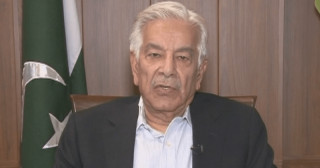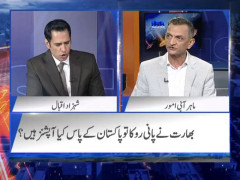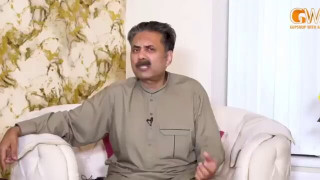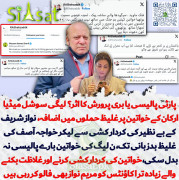Submitted by Brother Abdul Majd Al Hasan
"Turn in prayer to your Lord and sacrifice to Him alone." (Srah al-Kauthar (108):2)
Udhiyah (sacrifice) is among the great rituals of Islm, which signify the Oneness of Allh, His Blessings, and Bounties. It reminds us the exemplary obedience of our father, Ibrahm (alaihi as-salm), to His Lord and his great sacrifices to Him. Udhiyah encompasses much goodness and blessings and thus acquires a great deal of importance in the lives of Muslims.
"And for every nation We have appointed religious ceremonies, that they may mention the Name of Allh over the beast of cattle that He has given them for food. And your God is One God, so you must submit to Him Alone (in Islm)" [Srah al-Hajj (22): 34]
Hereunder is a brief look at the important rituals of Udhiyah:
Udhiyah: Its meaning and definition
Udhiyah refers to the animal (camel, cattle or sheep) that is sacrificed as an act of worship to Allh, during the period from after the Eid prayer on the Day of Nahr (Eid al-Adha) until the last day of Tashrq (the 13th day of Dhul-Hijjah), with the intention of offering sacrifice. Allh says:
"Say (O Muhammad (sallalahu alaihi wa-sallam)): 'Verily, my prayer, my sacrifice, my living and my dying are for Allh, the Lord of the Alamn (mankind, jinns and all that exists)." [Srah al-An'm (6): 162]
Is Udhiyah an Obligation?
Scholars differ concerning the ruling of Udhiyah, some are of the opinion that Udhiyah is wjib or obligatory while others hold Udhiyah as a confirmed Sunnah.
Among those who uphold the first opinion (wjib or obligatory) are Imm al-Awz'i, Imm al-Layth and Imm Abu Hanfah, and it is one of the two opinions narrated from Imm Ahmad. It was also the opinion of Shaikh al-Islam Ibn Taymiyyah, and is one of the two opinions in the mathhab of Imm Mlik. Those who favor this opinion take the following as evidence: Allh says:
"Therefore turn in prayer to your Lord and sacrifice (to Him only)." [Srah al-Kawthar 108:2]
This verse is a command and a command implies obligation. Also, it is repeated in the Sahhayn (i.e. Sahh al-Bukhar and Sahh Muslim) from Jundub (radhi allahu anhu),
"The Messenger of Allah (sallallahu alaihi wa-sallam) said:
"Whoever slaughtered his sacrifice before he prays, let him slaughter another one in its place, and whoever did not slaughter a sacrifice, let him do
so in the name of Allh." [Sahh Muslim vol. 3, no: 4818-21] and:
"Whoever can afford to offer a sacrifice but does not do so, let him not approach our place or prayer." [Musnad Ahmad and Ibn Majah. (Sahh) by al-Hkim (from Abu Hurayrah (radhi allahu anhu)), it is related in Fath al-Bar that its men are thiqt. This Hadth is declared Hasan (Good) by Shaikh al-Alban in Sahh Sunan Ibn Majah v: 2, no: 2532-1323]
Those who assert to the second opinion, i.e. Udhiyah is a confirmed Sunnah (meaning Sunnah mu'akkadah) are the better-known opinion of Mlik and Imm Ahmad, and the mathhab of al-Shfa'. It should be mentioned here that majority of the scholars uphold this view, and they state it Makrh (disliked) to neglect this act of worship, if one has the capability to perform a sacrifice. [Ras'il Fiqhiyyah by Shaykh Ibn 'Uthaymn, p. 46]
This opinion is based on the following Ahdth. Jbir (radhi allahu anhu), narrated:
"I prayed on Eid al-Adha with the Messenger of Allh (sallallahu alaihi wa-sallam), and when he finished (the prayer), he was brought one ram, and he sacrificed it. He said:
"In the Name of Allh, Allh is Most Great. This is on behalf of myself and any member of my Ummah who did not offer a sacrifice." [Awnul M'abd Sharh Sunan Ab Dwd by Muhammad Shams al-Haq 'Adhm آbdi, vol. 8, pp. 3-6] and the Hadth reported by all the famous Muhaddithn apart from al-Bukhar that the Messenger of Allh (radhi allahu anhu) said:
"Whoever among you wants to offer a sacrifice, let him not take anything from his hair or nails."
[Sahh Muslim vol. 3 nos. 4869-73]
Conclusion:
Shaikh Ibn Uthaymn (rahimahullah) following his discussion of those who say it is obligatory and those who say it is a Sunnah said,
"Each point of view has its evidence. It is safe for the one who is able to offer a sacrifice should not neglect to do so, because of what is involved in this act of reverence towards Allh, remembering Him, and making sure that one has nothing to be blamed for."
The Principle of Udhiyah
The basic rule of Udhiyah is that sacrifice is required at an appointed time from one who is alive, on behalf on himself and on behalf of his household. He may also include in the reward all those whom he wishes, dead or alive.
It is from the Sunnah that one includes his household living and dead in his Udhiyah. So, when he slaughters his sheep, he should say, "Allhumma htha 'ann wa 'an ahli bayt" meaning "O Allh! This is on my behalf and on behalf of my family members." It is from the virtues of Udhiyah that one animal is sufficient for one man and his family; he is not required to make separate sacrifices on behalf of every member (living or dead). Narrated Abu Ayyub:
"At the time of Allh's Messenger (sallallahu alaihi wa-sallam), a man would sacrifice a sheep on behalf of himself and the members of his household, and they would eat from it and give some to others."
[Sunan Ibn Majah v: 4, no: 3147. (Sahh) by Shaikh al-Alban in Sahh Sunan Ibn Majah v: 2, no: 2546] [also, see previously mentioned Hadth reported by Jbir (radhi allahu anhu) (Abu Dawd)] With regards to Udhiyah of a deceased person, if he has bequeathed up to one third of his wealth for the purpose of sacrifice or included it in his waqf (endowment), then his wishes must be carried out. Otherwise, offering sacrifice on behalf of the deceased is a good deed and it is considered to be giving charity on behalf of the dead.
Animals prescribed for Udhiyah are camels, cattle and sheep. With regards to sharing a sacrifice, then a camel or a cow can be shared by seven people, this is based on the narration of Jabir (radhi allahu anhu), who said:
"The Messenger of Allh (sallallahu alaihi wa-sallam) commanded us to share camels and cattle, each seven men sharing one animal." [Sahh Muslim v: 2, p. 662, no. 3024] If a sheep, a goat or a ram is offered for Udhiyah, then sharing is not allowed, since no evidence is found in the Sunnah for it.
It should be mentioned here that the scholars agree that sacrificing an animal and giving its meat in charity is better than giving its value in charity. The Messenger of Allh (sallallahu alaihi wa-sallam) chose to perform sacrifice and he did not do anything but that which is best and most befitting. This is the opinion of Abu Hanfah, al-Shfa'i and Ahmad. This refutes the saying of those who say that today people need money more than they need food, therefore it is better to give the money rather then sacrifice an animal.
From the conditions of Udhiyah is that the animal offered for sacrifice must have reached the required age, which is six months for a lamb, one year for a goat, two years for a cow and five years for a camel. The animal should be completely free of any faults because sacrifice is an act of worship and Allh is Tayyib and He only accepts that which is Tayyib. The Messenger of Allh (sallallahu alaihi wa-sallam)
"There are four that will not be accepted for sacrifice: a one-eyed animal whose defect is obvious, a sick animal whose sickness is obvious, a lame animal whose limp is obvious and an emaciated animal that has no marrow in its bones." [(Sahh) by Shaikh al-Alban in Sahh al-Jam no. 886] Milder defects do not disqualify an animal, but it is Makrh to sacrifice such animals, for e.g. animal with a horn or ear missing, or an animal with slits in its ears, etc. Whoever honors the rites of Allh, this has to do with the Taqwa (piety and righteousness) of his heart.
The Sacrificial animal is not for sale. It is forbidden to sell the animal chosen for sacrifice, except for a better exchange. If it gives birth to an offspring, the offspring must be sacrificed along with it. It is permissible to ride the animal. Narrated Abu Hurayrah (radhi allahu anhu), the Messenger of Allh (sallallahu alaihi wa-sallam) saw a man leading his camel. He (sallallahu alaihi wa-sallam) said:
"Ride it."
The man replied: "It (the animal) is for sacrifice." The Messenger of Allh (sallallahu alaihi wa-sallam) said:
"Ride it."
A second or a third time." [Sahh Muslim vol: 2, no: 3046]
Prescribed time for sacrifice
The animal can be sacrificed after the Eid prayer and the Khutbah (not when the Khutbah or the prayer starts) until before the sunset of the last day of Tashrq, which is 13th Dhul-Hijjah. The Messenger of Allh (sallallahu alaihi wa-sallam) said:
"Whoever sacrifices before the prayer, let him repeat it." [Sahh Muslim vol: 3, p. 1084, no: 4818] It is related from Ali (radiyaAllahu 'anhu):
"The days of Nahr (sacrifice) are the day of al-Adha and the three days following it." This is also the opinion of al-Hasan al-Basr, At Ibn Abi Rabh, al-Awz', al-Shfi'e and Ibn al-Munthir (rahimahullahum ajma'm)
Slaughtering the animal with one's own hands is better, but if one does not do so, it is Mustahabb (liked, preferable) for him to be present at the time of slaughtering. Anas (radhi allahu anhu) reported that Allh's Messenger (sallallahu alaihi wa-sallam) sacrificed with his own hands, two horned rams with black markings, reciting the name of Allh and glorifying Him (saying Allhu-Akbar). He placed his foot on their sides (while sacrificing). [Sahh Muslim: vol. 3, p. 1087, no: 4841]
Eating from one's sacrifice is Mustahabb (liked, preferable). It is also Mustahabb for him, who performs a Udhiyah, not to eat before he offers his sacrifice; he should break his fast with the meat of his sacrifice the prayer. The Messenger of Allh (sallallahu alaihi wa-sallam):
"Let every man eat from his sacrifice." [(Sahh) by Shaikh al-Alban in Sahh a-Jam no: 5349] Buraidah (radhi allahu anhu) reported:
"The Prophet (sallallahu alaihi wa-sallam) would not go out on the day of breaking the fast (Eid al-Fitr) until he had eaten and on the day of sacrifice (Eid al Adha) he would not eat until he had returned [from Salt]" This is related by at-Tirmidh and Ibn Majah and also by Sunan Ad-Dram who added: "And he would eat from his sacrifice." [Sharah as-Sunnah, vol. 4, p. 306, footnote no: 1. Shaikh al-Albane said, its isnd is Sahh, al-Mishkt, vol: 1, p. 452, no: 1440] Dividing the meat into three is Mustahabb (liked, preferable), one-third to keep for oneself, one-third to be given as gifts and one-third to be given in charity. This was the opinion of Ibn Mas'd (radhi allahu anhu) and Ibn Umar t. [(Sahh) by Shaikh al-Alban in Sunan Ibn Majah vol: 2, p: 203, no: 2546]
Selling any part of the sacrificed animal is prohibited
Scholars agree that it is not permissible to sell anything from the sacrificed animal's meat, skin or fat. The Messenger of Allh (sallallahu alaihi wa-sallam) said:
"Whoever sells the skin of his Udhiyah, there is no Udhiyah for him (i.e. his sacrifice is not counted)." [(Hasan) by Shaikh al-Alban in Sahh al-Jam, no: 6118] The butcher should not be given anything from the sacrifice, by way of reward or payment. Ali (sallallahu alaihi wa-sallam) said:
"The Messenger of Allh (sallallahu alaihi wa-sallam) commanded me to take care of the sacrifice and to give its meat, skin and raiment (covering used for protection) in charity, and not to give anything of it to the butcher as a compensation. He said: 'We will give him something from what we have.'" [(Agreed upon). Sahh Muslim, vol: 2, no: 3019]
"It was said that it is permissible to give the butcher something as a gift. It is also permissible to give some of it to a Kafir, if he is poor or a relative or a neighbor, in order to open his heart to Islam." [Fatawa Shaikh Abd al-Azz Ibn Bz]
"IF ANY OF YOU WANTS TO OFFER UDHIYAH..." Umm Salamah (radhi allahu anha) related that the Prophet Muhammad (sallallahu alaihi wa-sallam) said:
"If you see the Hill (new moon) of Dhul-Hijjah, and any one of you wants to make a sacrifice, then he should not cut (anything) from his hair and his nails." and in one narration he said:
"...then he should not take (cut) anything from his hair, nor from his nails, until he performs the sacrifice." [Sahh Muslim] These instructions of the Prophet (sallallahu alaihi wa-sallam) are unconditional, and unavoidable because his instructions constitute to obligation and his prohibition signifies Harm. Therefore, anyone who does any of the above-mentioned acts deliberately then he should seek forgiveness from Allh, but there is no report for any compensation.
If the hairs or nails cause harm to a person, like a broken nail, or a hair on the place of wound, then he is permitted to cut it. It should be mentioned here that both men and women can wash their hairs, because the Messenger of Allh (sallallahu alaihi wa-sallam) only forbade cutting of the hairs and not washing them. There is no harm in washing the head, or scratching it, even if some hairs may fall out.
It is incorrect to assign someone else to perform the sacrifice for the sake of cutting hairs and nails. This practice is completely wrong because the ruling applies to the one who offers the sacrifice, whether or not he sacrifices with his own hands. The person who is delegated to sacrifice on behalf of someone else does not have to abide by this ruling. Also, this ruling applies only to the one who slaughters a sacrifice and not on the whole family, unless if separate Udhiyah is slaughtered for everyone. Allh's Messenger (sallallahu alaihi wa-sallam) used to offer sacrifice and include all his family members but no report is found saying that he forbade his family members to cut hairs or nails.
If a person cuts his hairs or nails because he did not intend to perform a sacrifice and then later decides to slaughter an Udhiyah (in the ten days of Dhul-Hijjah), then he should refrain from cutting them from the time he intends to perform a sacrifice. In the case, when a person does not intend to perform a sacrifice but he later plans to perform Hajj, then he should also not cut his nails or hairs because the cutting is only permitted in times of necessity. But if he is performing Hajj Tamattu (a form of Hajj, whereby the Hajj and Umrah are combined but separate Ihrm is made for Umrah and a new Ihrm is made for the Hajj), then he should trim his hairs after the Umrah because it is a part of the ritual.
Scholars mention that the wisdom behind this prohibition is so that he may resemble those in Ihrm in some aspects of the rituals and the one who sacrifice may draw nearer to Allh by offering his sacrifice. "...and do not shave your heads until the Had (sacrifice) reaches the place of sacrifice..." Therefore, he leaves his hairs and nails along until the time when he offers his sacrifice in hope that Allh will save him form the Fire. And Allh knows best.
Source: http://www.islaam.net/main/display.php?id=985&category=112
"Turn in prayer to your Lord and sacrifice to Him alone." (Srah al-Kauthar (108):2)
Udhiyah (sacrifice) is among the great rituals of Islm, which signify the Oneness of Allh, His Blessings, and Bounties. It reminds us the exemplary obedience of our father, Ibrahm (alaihi as-salm), to His Lord and his great sacrifices to Him. Udhiyah encompasses much goodness and blessings and thus acquires a great deal of importance in the lives of Muslims.
"And for every nation We have appointed religious ceremonies, that they may mention the Name of Allh over the beast of cattle that He has given them for food. And your God is One God, so you must submit to Him Alone (in Islm)" [Srah al-Hajj (22): 34]
Hereunder is a brief look at the important rituals of Udhiyah:
Udhiyah: Its meaning and definition
Udhiyah refers to the animal (camel, cattle or sheep) that is sacrificed as an act of worship to Allh, during the period from after the Eid prayer on the Day of Nahr (Eid al-Adha) until the last day of Tashrq (the 13th day of Dhul-Hijjah), with the intention of offering sacrifice. Allh says:
"Say (O Muhammad (sallalahu alaihi wa-sallam)): 'Verily, my prayer, my sacrifice, my living and my dying are for Allh, the Lord of the Alamn (mankind, jinns and all that exists)." [Srah al-An'm (6): 162]
Is Udhiyah an Obligation?
Scholars differ concerning the ruling of Udhiyah, some are of the opinion that Udhiyah is wjib or obligatory while others hold Udhiyah as a confirmed Sunnah.
Among those who uphold the first opinion (wjib or obligatory) are Imm al-Awz'i, Imm al-Layth and Imm Abu Hanfah, and it is one of the two opinions narrated from Imm Ahmad. It was also the opinion of Shaikh al-Islam Ibn Taymiyyah, and is one of the two opinions in the mathhab of Imm Mlik. Those who favor this opinion take the following as evidence: Allh says:
"Therefore turn in prayer to your Lord and sacrifice (to Him only)." [Srah al-Kawthar 108:2]
This verse is a command and a command implies obligation. Also, it is repeated in the Sahhayn (i.e. Sahh al-Bukhar and Sahh Muslim) from Jundub (radhi allahu anhu),
"The Messenger of Allah (sallallahu alaihi wa-sallam) said:
"Whoever slaughtered his sacrifice before he prays, let him slaughter another one in its place, and whoever did not slaughter a sacrifice, let him do
so in the name of Allh." [Sahh Muslim vol. 3, no: 4818-21] and:
"Whoever can afford to offer a sacrifice but does not do so, let him not approach our place or prayer." [Musnad Ahmad and Ibn Majah. (Sahh) by al-Hkim (from Abu Hurayrah (radhi allahu anhu)), it is related in Fath al-Bar that its men are thiqt. This Hadth is declared Hasan (Good) by Shaikh al-Alban in Sahh Sunan Ibn Majah v: 2, no: 2532-1323]
Those who assert to the second opinion, i.e. Udhiyah is a confirmed Sunnah (meaning Sunnah mu'akkadah) are the better-known opinion of Mlik and Imm Ahmad, and the mathhab of al-Shfa'. It should be mentioned here that majority of the scholars uphold this view, and they state it Makrh (disliked) to neglect this act of worship, if one has the capability to perform a sacrifice. [Ras'il Fiqhiyyah by Shaykh Ibn 'Uthaymn, p. 46]
This opinion is based on the following Ahdth. Jbir (radhi allahu anhu), narrated:
"I prayed on Eid al-Adha with the Messenger of Allh (sallallahu alaihi wa-sallam), and when he finished (the prayer), he was brought one ram, and he sacrificed it. He said:
"In the Name of Allh, Allh is Most Great. This is on behalf of myself and any member of my Ummah who did not offer a sacrifice." [Awnul M'abd Sharh Sunan Ab Dwd by Muhammad Shams al-Haq 'Adhm آbdi, vol. 8, pp. 3-6] and the Hadth reported by all the famous Muhaddithn apart from al-Bukhar that the Messenger of Allh (radhi allahu anhu) said:
"Whoever among you wants to offer a sacrifice, let him not take anything from his hair or nails."
[Sahh Muslim vol. 3 nos. 4869-73]
Conclusion:
Shaikh Ibn Uthaymn (rahimahullah) following his discussion of those who say it is obligatory and those who say it is a Sunnah said,
"Each point of view has its evidence. It is safe for the one who is able to offer a sacrifice should not neglect to do so, because of what is involved in this act of reverence towards Allh, remembering Him, and making sure that one has nothing to be blamed for."
The Principle of Udhiyah
The basic rule of Udhiyah is that sacrifice is required at an appointed time from one who is alive, on behalf on himself and on behalf of his household. He may also include in the reward all those whom he wishes, dead or alive.
It is from the Sunnah that one includes his household living and dead in his Udhiyah. So, when he slaughters his sheep, he should say, "Allhumma htha 'ann wa 'an ahli bayt" meaning "O Allh! This is on my behalf and on behalf of my family members." It is from the virtues of Udhiyah that one animal is sufficient for one man and his family; he is not required to make separate sacrifices on behalf of every member (living or dead). Narrated Abu Ayyub:
"At the time of Allh's Messenger (sallallahu alaihi wa-sallam), a man would sacrifice a sheep on behalf of himself and the members of his household, and they would eat from it and give some to others."
[Sunan Ibn Majah v: 4, no: 3147. (Sahh) by Shaikh al-Alban in Sahh Sunan Ibn Majah v: 2, no: 2546] [also, see previously mentioned Hadth reported by Jbir (radhi allahu anhu) (Abu Dawd)] With regards to Udhiyah of a deceased person, if he has bequeathed up to one third of his wealth for the purpose of sacrifice or included it in his waqf (endowment), then his wishes must be carried out. Otherwise, offering sacrifice on behalf of the deceased is a good deed and it is considered to be giving charity on behalf of the dead.
Animals prescribed for Udhiyah are camels, cattle and sheep. With regards to sharing a sacrifice, then a camel or a cow can be shared by seven people, this is based on the narration of Jabir (radhi allahu anhu), who said:
"The Messenger of Allh (sallallahu alaihi wa-sallam) commanded us to share camels and cattle, each seven men sharing one animal." [Sahh Muslim v: 2, p. 662, no. 3024] If a sheep, a goat or a ram is offered for Udhiyah, then sharing is not allowed, since no evidence is found in the Sunnah for it.
It should be mentioned here that the scholars agree that sacrificing an animal and giving its meat in charity is better than giving its value in charity. The Messenger of Allh (sallallahu alaihi wa-sallam) chose to perform sacrifice and he did not do anything but that which is best and most befitting. This is the opinion of Abu Hanfah, al-Shfa'i and Ahmad. This refutes the saying of those who say that today people need money more than they need food, therefore it is better to give the money rather then sacrifice an animal.
From the conditions of Udhiyah is that the animal offered for sacrifice must have reached the required age, which is six months for a lamb, one year for a goat, two years for a cow and five years for a camel. The animal should be completely free of any faults because sacrifice is an act of worship and Allh is Tayyib and He only accepts that which is Tayyib. The Messenger of Allh (sallallahu alaihi wa-sallam)
"There are four that will not be accepted for sacrifice: a one-eyed animal whose defect is obvious, a sick animal whose sickness is obvious, a lame animal whose limp is obvious and an emaciated animal that has no marrow in its bones." [(Sahh) by Shaikh al-Alban in Sahh al-Jam no. 886] Milder defects do not disqualify an animal, but it is Makrh to sacrifice such animals, for e.g. animal with a horn or ear missing, or an animal with slits in its ears, etc. Whoever honors the rites of Allh, this has to do with the Taqwa (piety and righteousness) of his heart.
The Sacrificial animal is not for sale. It is forbidden to sell the animal chosen for sacrifice, except for a better exchange. If it gives birth to an offspring, the offspring must be sacrificed along with it. It is permissible to ride the animal. Narrated Abu Hurayrah (radhi allahu anhu), the Messenger of Allh (sallallahu alaihi wa-sallam) saw a man leading his camel. He (sallallahu alaihi wa-sallam) said:
"Ride it."
The man replied: "It (the animal) is for sacrifice." The Messenger of Allh (sallallahu alaihi wa-sallam) said:
"Ride it."
A second or a third time." [Sahh Muslim vol: 2, no: 3046]
Prescribed time for sacrifice
The animal can be sacrificed after the Eid prayer and the Khutbah (not when the Khutbah or the prayer starts) until before the sunset of the last day of Tashrq, which is 13th Dhul-Hijjah. The Messenger of Allh (sallallahu alaihi wa-sallam) said:
"Whoever sacrifices before the prayer, let him repeat it." [Sahh Muslim vol: 3, p. 1084, no: 4818] It is related from Ali (radiyaAllahu 'anhu):
"The days of Nahr (sacrifice) are the day of al-Adha and the three days following it." This is also the opinion of al-Hasan al-Basr, At Ibn Abi Rabh, al-Awz', al-Shfi'e and Ibn al-Munthir (rahimahullahum ajma'm)
Slaughtering the animal with one's own hands is better, but if one does not do so, it is Mustahabb (liked, preferable) for him to be present at the time of slaughtering. Anas (radhi allahu anhu) reported that Allh's Messenger (sallallahu alaihi wa-sallam) sacrificed with his own hands, two horned rams with black markings, reciting the name of Allh and glorifying Him (saying Allhu-Akbar). He placed his foot on their sides (while sacrificing). [Sahh Muslim: vol. 3, p. 1087, no: 4841]
Eating from one's sacrifice is Mustahabb (liked, preferable). It is also Mustahabb for him, who performs a Udhiyah, not to eat before he offers his sacrifice; he should break his fast with the meat of his sacrifice the prayer. The Messenger of Allh (sallallahu alaihi wa-sallam):
"Let every man eat from his sacrifice." [(Sahh) by Shaikh al-Alban in Sahh a-Jam no: 5349] Buraidah (radhi allahu anhu) reported:
"The Prophet (sallallahu alaihi wa-sallam) would not go out on the day of breaking the fast (Eid al-Fitr) until he had eaten and on the day of sacrifice (Eid al Adha) he would not eat until he had returned [from Salt]" This is related by at-Tirmidh and Ibn Majah and also by Sunan Ad-Dram who added: "And he would eat from his sacrifice." [Sharah as-Sunnah, vol. 4, p. 306, footnote no: 1. Shaikh al-Albane said, its isnd is Sahh, al-Mishkt, vol: 1, p. 452, no: 1440] Dividing the meat into three is Mustahabb (liked, preferable), one-third to keep for oneself, one-third to be given as gifts and one-third to be given in charity. This was the opinion of Ibn Mas'd (radhi allahu anhu) and Ibn Umar t. [(Sahh) by Shaikh al-Alban in Sunan Ibn Majah vol: 2, p: 203, no: 2546]
Selling any part of the sacrificed animal is prohibited
Scholars agree that it is not permissible to sell anything from the sacrificed animal's meat, skin or fat. The Messenger of Allh (sallallahu alaihi wa-sallam) said:
"Whoever sells the skin of his Udhiyah, there is no Udhiyah for him (i.e. his sacrifice is not counted)." [(Hasan) by Shaikh al-Alban in Sahh al-Jam, no: 6118] The butcher should not be given anything from the sacrifice, by way of reward or payment. Ali (sallallahu alaihi wa-sallam) said:
"The Messenger of Allh (sallallahu alaihi wa-sallam) commanded me to take care of the sacrifice and to give its meat, skin and raiment (covering used for protection) in charity, and not to give anything of it to the butcher as a compensation. He said: 'We will give him something from what we have.'" [(Agreed upon). Sahh Muslim, vol: 2, no: 3019]
"It was said that it is permissible to give the butcher something as a gift. It is also permissible to give some of it to a Kafir, if he is poor or a relative or a neighbor, in order to open his heart to Islam." [Fatawa Shaikh Abd al-Azz Ibn Bz]
"IF ANY OF YOU WANTS TO OFFER UDHIYAH..." Umm Salamah (radhi allahu anha) related that the Prophet Muhammad (sallallahu alaihi wa-sallam) said:
"If you see the Hill (new moon) of Dhul-Hijjah, and any one of you wants to make a sacrifice, then he should not cut (anything) from his hair and his nails." and in one narration he said:
"...then he should not take (cut) anything from his hair, nor from his nails, until he performs the sacrifice." [Sahh Muslim] These instructions of the Prophet (sallallahu alaihi wa-sallam) are unconditional, and unavoidable because his instructions constitute to obligation and his prohibition signifies Harm. Therefore, anyone who does any of the above-mentioned acts deliberately then he should seek forgiveness from Allh, but there is no report for any compensation.
If the hairs or nails cause harm to a person, like a broken nail, or a hair on the place of wound, then he is permitted to cut it. It should be mentioned here that both men and women can wash their hairs, because the Messenger of Allh (sallallahu alaihi wa-sallam) only forbade cutting of the hairs and not washing them. There is no harm in washing the head, or scratching it, even if some hairs may fall out.
It is incorrect to assign someone else to perform the sacrifice for the sake of cutting hairs and nails. This practice is completely wrong because the ruling applies to the one who offers the sacrifice, whether or not he sacrifices with his own hands. The person who is delegated to sacrifice on behalf of someone else does not have to abide by this ruling. Also, this ruling applies only to the one who slaughters a sacrifice and not on the whole family, unless if separate Udhiyah is slaughtered for everyone. Allh's Messenger (sallallahu alaihi wa-sallam) used to offer sacrifice and include all his family members but no report is found saying that he forbade his family members to cut hairs or nails.
If a person cuts his hairs or nails because he did not intend to perform a sacrifice and then later decides to slaughter an Udhiyah (in the ten days of Dhul-Hijjah), then he should refrain from cutting them from the time he intends to perform a sacrifice. In the case, when a person does not intend to perform a sacrifice but he later plans to perform Hajj, then he should also not cut his nails or hairs because the cutting is only permitted in times of necessity. But if he is performing Hajj Tamattu (a form of Hajj, whereby the Hajj and Umrah are combined but separate Ihrm is made for Umrah and a new Ihrm is made for the Hajj), then he should trim his hairs after the Umrah because it is a part of the ritual.
Scholars mention that the wisdom behind this prohibition is so that he may resemble those in Ihrm in some aspects of the rituals and the one who sacrifice may draw nearer to Allh by offering his sacrifice. "...and do not shave your heads until the Had (sacrifice) reaches the place of sacrifice..." Therefore, he leaves his hairs and nails along until the time when he offers his sacrifice in hope that Allh will save him form the Fire. And Allh knows best.
Source: http://www.islaam.net/main/display.php?id=985&category=112



































